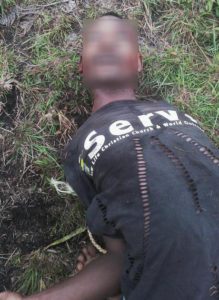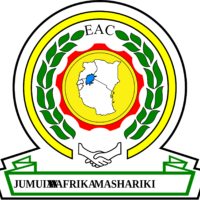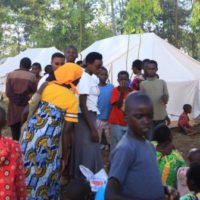Exiled activists organise demonstrations against alarming rights violations; an idea that is not shared by activists living in Burundi.

A victim of extra-judiciary execution
A number of civil society organisations have called on Burundians in exile to protest against new waves of extra-judiciary executions and forced disappearances.
“We call on all Burundians especially those living abroad to start protesting from 26 April”, says Mbonimpa, the exiled President of the now-banned APRODH, an organisation fighting for human and prisoners’ rights.
The protests aims at claiming “justice for crimes committed in Burundi since the protest against the illegal and unconstitutional third term of Pierre Nkurunziza”, says Armel Niyongere, President of the Christian Action for the Abolition of Torture (ACAT).
Civil society organisations that opposed President Nkurunziza’s bid for a third term in April 2015 say human rights violations that ensued are alarming.
Over the last week-end alone, four people were reportedly killed. One of the victims was reported murdered in cold blood by a military officer.
APRODH says at least 2,000 people have been killed since 2015 while 8,000 have been jailed. Contradictory figures by the National Independent Commission for Human Rights (CNIDH) show 720 deaths and 80 cases of torture.
Mbonimpa says such a situation of human rights abuse is damning to the government of Burundi.
He says things “have exceeded limits. That’s why we continually call on the international community to go and see what’s happening in Burundi”.
The organizers of the protests say Burundians living in the country cannot take part in the protest for fear of being killed.
Support and opposition
A number of political opponents residing in Burundi express their support for the protests. Léonce Ngendakumana, the vice-president of the opposition party Frodebu, says “seeing the situation [of despair] in which we are, it’s high time we stood against it”.
Tatien Sibomana of Uprona party says protesting against violations of human rights in Burundi is both a legal and moral duty that should attract the participation of every sensible person. “Even sensible foreigners should take part in the protests”, he says.
The politicians decry the denial of the right to free speech to certain people. Ngendakumana says there is a double standard in regard to the right to demonstrate. He says some are forbidden by the governing authority to mourn theirs whereas others are allowed to organized demonstrations secured by armed forces.
Sibomana says “those who seek to justify the crimes are allowed to demonstrate whenever they wish. But those who want to protest against crimes are reduced to silence”.
Venant Hamza Burikukiye, the Legal Representative of CAPES+, calls for a counter-protest. He says “real Burundian patriots and foreigners who are friends of Burundi and who are against the planned protests should organize a counter-protest”.
He says the protests organized by those who misled the youth into participating in the “insurrection” of 2015 in which they lost their lives have no good purpose. Moreover, nothing shows the government has committed the abuses they want to protest against.
As for the claim that some people are not allowed to protest, he says “insurrection and demonstration are two different things”.
Bécaud Njangwa, president of ONELOP, a local civil society organisation, says the organizers of the protests “have a grudge against the government the reason why they try to show that the situation in Burundi is at its worst”.
He recognizes the existence of human rights violations, but opposes putting the blame on the government.“Neutral and impartial investigations alone will reveal those who are responsible for the crimes”, he says.
He opposes the protests saying that demonstrating means accusing the government of the violations.
Instead, he says, the organizers of the protests should sit together with the different institutions of the government to discuss and try to find a sustainable solution to the problem.


















 IWACU Open Data
IWACU Open Data

